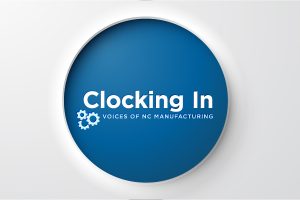Food purchases have traditionally had three drivers: price, taste and convenience. In recent years, though, as consumers have gained broader access to information about the foods and the companies manufacturing them, drivers have shifted. Health and wellness, safety, social impact, experience and transparency have all arrived at the table, and are playing into customers’ perceptions and purchase intentions. Simply put, some customers—especially Millennials—are just as likely to buy a bag of chips from a company they perceive to be socially responsible, as they are to consider a competing brand that’s cheaper.
Just as your customers’ values and needs are changing, so are those of your employees. Developing a socially responsible corporate culture and incorporating it into your recruitment and retention strategy could strengthen engagement, enhance job satisfaction, and boost morale, which could result in an increased employee retention rate or a better bottom line.
Employee Engagement
“Engagement” means that employees are enthusiastic and have a positive outlook regarding their work. Building relationships with your employees is what engagement is all about. But, while many companies conduct annual employee engagement surveys, 98 percent of CEOs ignore the annual employee engagement survey results, assuming that employee morale is doing just fine. In reality, only about 34 percent of American workers are engaged. Get out of the office, talk to your frontline workers, or conduct a survey and take action on the results. An engagement program can increase profits by $2,400 per employee per year.
When you do get out of the office, how and what you communicate with your employees is important. Your communication with your employees should always be informative, factual and two-ways. Keeping staff informed about business developments, operations, and new regulations such as FSMA supports positive engagement and reduces rumors. Regular communication via emails, meetings, and memos foster trust which is essential to support honest two-way communication.
The Power of Organizational Social Impact
Employees that can readily support the social impact of their organization are more likely to be proud of where they work. In fact, 86 percent of young or new professionals/soon to be college graduates say it’s important that the company they work for behaves in a socially responsible way. A Net Impact survey even demonstrated that employees would take huge pay cuts to be able to work for organizations with values similar to their own.
Organizations can adopt or strengthen corporate social responsibility through initiatives like sustainability, philanthropy, ethical labor practices, and/or volunteerism.
Enhancing Job Satisfaction Through Workplace Safety
Injuries in the workplace are still all too common, especially in the food and beverage industry. According to a study conducted by Emory University, food industry workers have a 60 percent higher rate of occupation injury or illness than workers in other industries. Developing and implementing a health and safety program is a good first step towards making improvement to worker safety, which can improve employee morale, leading to both higher retention rates and increased productivity. Return on investment includes:
- Reduced direct costs related to employee illness, injuries, and fatalities.
- Lowered indirect costs, relevant to the repair of damaged property, accident investigation and implementation of corrective action, schedule delays and additional administrative time.
- Decreased risk of worker complaints, failed inspections and potential fines associated with noncompliance.
Just as your consumers’ values and drivers have changed, so have your employees’. Today’s workers aren’t likely to remain at a company if their needs aren’t met. Remaining relevant by incorporating socially responsible values into your recruitment and retention strategy is good for your employees, and also good for business!
—
 Cortney Alston is the Program Lead for NC State’s IES Technical and Business Education. She has nearly a decade of university, nonprofit, clinical, state and local government program administration and outreach experience. She has previously held roles in case management, human resources, career counseling and professional staff development in various sectors. Cortney is trained in Failure Mode and Effect Analysis (FMEA), Root Cause Analysis (RCA), Define, Measure, Analyze, Improve and Control (DMAIC) principles, Development Dimensions International (DDI), among numerous other topics.
Cortney Alston is the Program Lead for NC State’s IES Technical and Business Education. She has nearly a decade of university, nonprofit, clinical, state and local government program administration and outreach experience. She has previously held roles in case management, human resources, career counseling and professional staff development in various sectors. Cortney is trained in Failure Mode and Effect Analysis (FMEA), Root Cause Analysis (RCA), Define, Measure, Analyze, Improve and Control (DMAIC) principles, Development Dimensions International (DDI), among numerous other topics.



